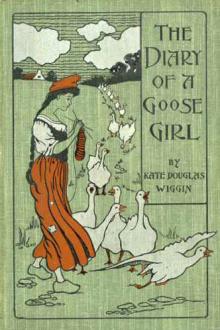The Arabian Nights - - (inspirational books to read txt) 📗

- Author: -
- Performer: -
Book online «The Arabian Nights - - (inspirational books to read txt) 📗». Author -
As soon as Aladdin had given these orders, the genie disappeared, but presently returned with the horse, the forty slaves, ten of whom carried each a purse containing ten thousand pieces of gold, and six women slaves, each carrying on her head a different dress for Aladdin's mother, wrapped up in a piece of silver tissue.
Of the ten purses Aladdin took four, which he gave to his mother, telling her, those were to supply her with necessaries; the other six he left in the hands of the slaves who brought them, with an order to throw them by handfuls among the people as they went to the sultan's palace. The six slaves who carried the purses he ordered likewise to march before him, three on the right hand and three on the left. Afterward he presented the six women slaves to his mother, telling her that they were her slaves, and that the dresses they had brought were for her use.
When Aladdin had thus settled matters, he told the genie he would call for him when he wanted him, and thereupon the genie disappeared. Aladdin's thoughts now were only upon answering, as soon as possible, the desire the sultan had shewn to see him. He despatched one of the forty slaves to the palace, with an order to address himself to the chief of the porters, to know when he might have the honour to come and throw himself at the sultan's feet. The slave soon acquitted himself of his commission, and brought for answer that the sultan waited for him with impatience.
Aladdin immediately mounted his charger, and though he never was on horseback before, appeared with such extraordinary grace, that the most experienced horseman would not have taken him for a novice. The streets through which he was to pass were almost instantly filled with an innumerable concourse of people, who made the air echo with their acclamations, especially every time the six slaves who carried the purses threw handfuls of gold among the populace. Neither did these shouts of joy come from those alone who scrambled for the money, but from a superior rank of people, who could not forbear applauding Aladdin's generosity. Not only those who knew him when he played in the streets like a vagabond did not recollect him, but those who saw him but a little while before hardly recognised him, so much were his features altered: such were the effects of the lamp, as to procure by degrees to those who possessed it perfections suitable to the rank to which the right use of it advanced them. Much more attention was paid to Aladdin's person than to the pomp and magnificence of his attendants, as a similar show had been seen the day before, when the slaves walked in procession with the present to the sultan. Nevertheless, the horse was much admired by good judges, who knew how to discern his beauties, without being dazzled by the jewels and richness of his furniture. When the report was everywhere spread that the sultan was going to give the princess in marriage to Aladdin, nobody regarded his birth, nor envied his good fortune, so worthy he seemed of it in the public opinion.
When he arrived at the palace, everything was prepared for his reception; and when he came to the gate of the second court, he would have alighted from his horse, agreeably to the custom observed by the grand vizier, the commander-in-chief of the empire, and governors of provinces of the first rank; but the chief of the mace-bearers, who waited on him by the sultan's order, prevented him, and attended him to the grand hall of audience, where he helped him to dismount. The officers formed themselves into two ranks at the entrance of the hall. The chief put Aladdin on his right hand, and through the midst of them led him to the sultan's throne.
As soon as the sultan perceived Aladdin, he was no less surprised to see him more richly and magnificently habited than ever he had been himself, than struck at his good mien, fine shape, and a certain air of unexpected dignity, very different from the meanness of his mother's late appearance.
But, notwithstanding, his amazement and surprise did not hinder him from rising off his throne, and descending two or three steps, quickly enough to prevent Aladdin's throwing himself at his feet. He embraced him with all possible demonstrations of joy at his arrival. After this civility Aladdin would have thrown himself at his feet again; but he held him fast by the hand, and obliged him to sit close to the throne.
Aladdin then addressed the sultan, saying: "I receive the honour which your majesty out of your great condescension is pleased to confer; but permit me to assure you that I know the greatness of your power, and that I am not insensible how much my birth is below the lustre of the high rank to which I am raised. I ask your majesty's pardon for my rashness, but I cannot dissemble that I should die with grief were I to lose my hopes of seeing myself united to the divine princess who is the object of my wishes."
"My son," answered the sultan, embracing him a second time, "you would wrong me to doubt for a moment of my sincerity: your life from this moment is too dear to me not to preserve it, by presenting you with the remedy which is at my disposal."
After these words, the sultan gave a signal, and immediately the air echoed with the sound of trumpets, hautboys, and other musical instruments: and at the same time he led Aladdin into a magnificent hall, where was laid out a most splendid collation. The sultan and Aladdin ate by themselves, while the grand vizier and the great lords of the court, according to their dignity and rank, sat at different tables. The conversation turned on different subjects; but all the while the sultan took so much pleasure in looking at his intended son-in-law, that he hardly ever took his eyes off him; and throughout the whole of their conversation Aladdin shewed so much good sense, as confirmed the sultan in the high opinion he had formed of him.
After the feast, the sultan sent for the chief judge of his capital, and ordered him to draw up immediately a contract of marriage between the Princess Badroulboudour, his daughter, and Aladdin.
When the judge had drawn up the contract in all the requisite forms, the sultan asked Aladdin if he would stay in the palace, and solemnise the ceremonies of marriage that day; to which he answered: "Sir, though great is my impatience to enjoy your majesty's goodness, yet I beg of you to give me leave to defer it till I have built a palace fit to receive the princess; therefore I petition you to grant me a convenient spot of ground near your abode, that I may the more frequently pay my respects, and I will take care to have it finished with all diligence." "Son," said the sultan, "take what ground you think proper, there is space enough on every quarter round my palace; but consider, I cannot see you too soon united with my daughter, which alone is wanting to complete my happiness." After these words he embraced Aladdin again, who took his leave with as much politeness as if he had been bred up and had always lived at court.
Aladdin returned home in the order he had come, amidst the acclamations of the people, who wished him all happiness and prosperity. As soon as he dismounted, he retired to his own chamber, took the lamp, and called the genie as before, who in the usual manner made him a tender of his service. "Genie," said Aladdin, "I have every reason to commend your exactness in executing hitherto punctually whatever I have demanded; but now, if you have any regard for the lamp, your protector, you must shew, if possible, more zeal and diligence than ever. I would have you build me, as soon as you can, a palace opposite, but at a proper distance from, the sultan's, fit to receive my spouse, the Princess Badroulboudour. I leave the choice of the materials to you, that is to say, porphyry, jasper, agate, lapis lazuli, or the finest marble of various colours, and also the architecture of the building. But I expect that on the terraced roof of this palace you will build me a large hall crowned with a dome, and having four equal fronts; and that instead of layers of bricks, the walls be formed of massy gold and silver, laid alternately: that each front shall contain six windows, the lattices of all of which (except one, which must be left unfinished) shall be so enriched in the most tasteful workmanship, with diamonds, rubies, and emeralds, that they shall exceed anything of the kind ever seen in the world. I would have an inner and outer court in front of the palace, and a spacious garden; but above all things, take care that there be laid in a place which you shall point out to me, a treasure of gold and silver coin. Besides, the edifice must be well provided with kitchens and offices, storehouses, and rooms to keep choice furniture in, for every season of the year. I must have stables full of the finest horses, with their equerries and grooms, and hunting equipage. There must be officers to attend the kitchens and offices, and women slaves to wait on the princess. You understand what I mean; therefore go about it, and come and tell me when all is finished."
By the time Aladdin had instructed the genie respecting the building of his palace, the sun was set. The next morning, before break of day, our bridegroom, whose love for the princess would not let him sleep, was up, when the genie presented himself and said: "Sir, your palace is finished; come and see how you like it." Aladdin had no sooner signified his consent, than the genie transported him thither in an instant, and he found it so much beyond his expectation, that he could not enough admire it. The genie led him through all the apartments, where he met with nothing but what was rich and magnificent, with officers and slaves all habited according to their rank and the services to which they were appointed. The genie then shewed him the treasury, which was opened by a treasurer, where Aladdin saw heaps of purses, of different sizes, piled up to the top of the ceiling, and disposed in most excellent order. The genie assured him of the treasurer's fidelity, and thence led him to





Comments (0)